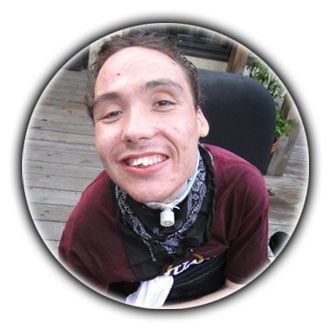Publication Order Form
![]()
Items marked ![]() are FREE to Minnesota parents of children and young adults with disabilities.
are FREE to Minnesota parents of children and young adults with disabilities.
![]() items are free to young adults, high school or older, with disabilities and their families.
items are free to young adults, high school or older, with disabilities and their families.
Please limit requests for free items to 10 or less per order.
Transition
PACER provides information, resources, and technical assistance to parents of young adults, 14 through 21, with disabilities and the professionals who work with them on transition related topics, such as; post secondary options, housing, employment, and recreation.
ADA Related Articles | Free to Download
ADA Related Articles
Articles show how the Americans with Disabilities Act affects child care centers, recreation programs, schools, filing complaints, health care providers, post-secondary education and the Rehabilitation Act, employment discrimination, and transition. 1993-1997.

 $5 for set |
PHP-c51-01
$5 for set |
PHP-c51-01
Board Game
Transition Trek Game
An innovative and engaging board game that helps youth and young adults plan for life after high school. Players draw cards with questions related to careers, independent living, and self determination. Six game pieces included. 2010.
$15 |
ST-23
Books
Housing: Where Will Our Children Live When They Grow Up?
Parents of youth with disabilities will find that this easy-to-use book answers many questions about future housing choices to make with their child. From housing options to funding to supports and services, there is a wealth of information. Updated 2017.
 $8 |
10+ copies, $6 each
| PHP-a26
$8 |
10+ copies, $6 each
| PHP-a26
Incorporating the Guideposts for Success into Minnesota's Personal Learning Plan Process
This publication provides guidance to Minnesota CareerForce youth development professionals and others on how to integrate the Guideposts for Success framework into the Individualized Learning Plan (ILP) model. Developed for Minnesota’s Partners for Youth Disability Employment Initiative (DEI), it demonstrates how to merge the core strategies of DEI youth-focused projects – career pathways, Integrated Resource Teams (IRTs), and the Guideposts – with ILP career planning activities for both in-school and out-of-school youth.
FREE |
Online Only
| ST-42
Mapping Dreams: The Transition to Adulthood
What parents can do to help plan for their child’s transition from high school to adult employment, postsecondary education or training, and independent living. Includes talking points to help plan with your child for his or her future and a resource list. Updated 2016.

 $8 |
10+ copies, $6 each
| ST-40
$8 |
10+ copies, $6 each
| ST-40
Minnesota Secondary Transition Toolkit for Families: A Guide to Preparing Your Child with a Disability for Life Beyond High School
This guidebook helps families with easy-to-understand information about why transition planning is important, how it all starts with the transition assessment process, and the rules that schools follow during the transition process. It also includes information about community partners who can support young people with disabilities when they become adults. Topics include healthcare and health maintenance, benefits planning, postsecondary education and accommodations, recreation, social resources, transportation, and housing. 2017. Download only. One copy may be printed from downloaded booklet.
 $9 |
ST-41
$9 |
ST-41
Possibilities: A Financial Resource for Parents of Children with Disabilities
A booklet first published in 2004 by the National Endowment for Financial Education (NEFE) and PACER, has been revamped and expanded in an online format. This guide offers tips and information on organizing financial records, managing money, dealing with debt, preparing income taxes, saving for college, preparing youth for adult employment, and more. Each section includes links to additional resources. 2011
FREE |
Online Only
| WEB-1
Information Cards
IEP Meeting Parent Tip Card for Transition Age Students with Disabilities (Ages 14+)
Laminated cards with questions to ask during your child's Individualized Education Program (IEP) meeting about the transition planning process. 2018.

 $0.25 | 100+ copies, $.20 each |
AP-47
$0.25 | 100+ copies, $.20 each |
AP-47
Record Keeping Folders
Moving From High School to Adulthood: Record Keeping Tracker
This folder is intended to be used as a place for youth to keep track, record, and store necessary documents related to their transition journey. Stuffed inside is a handout titled Moving From High School to Adulthood: Record Keeping Tracker Resources.” (Also available Children’s Mental Health Parent Folder and Special Education Record Keeping Folders)
$2 | PHP-a61a
Training
Getting and Keeping the First Job: Trainer’s Manual and PowerPoint Presentation
The goal of this training is to help families, caregivers, and professionals understand the realities of today’s work world so they can help youth with disabilities earn competitive employment. Participants will learn the importance of disability self-awareness, how families can help youth with career planning, and strategies to navigate resumes, job interviews, and job accommodations. Download only.
Online Only | NPC-41
The Bridge to Work: Supplemental Security Income (SSI)
This training provides answers to common questions PACER receives from parents and advocates related to Social Security Benefits for individuals with disabilities in a way that is understandable to someone unfamiliar with the system. It also highlights federal and state training programs and Social Security Work Incentives that can help transition-age youth reach their educational and work goals while receiving SSI benefits. The curriculum can be used by organizations or individuals offering workshops or trainings to parents of youth with disabilities in middle school or high school. Download only.
Online Only | NPC-BW
Transition Parent Briefs
PACER has partnered with a number of national technical assistance centers to develop content designed to inform youth and families about a range of transition topics, such as postsecondary education, mental health, career development, soft skills, disclosure, diploma options, transition planning and more. View the full list of these collaborative products.


